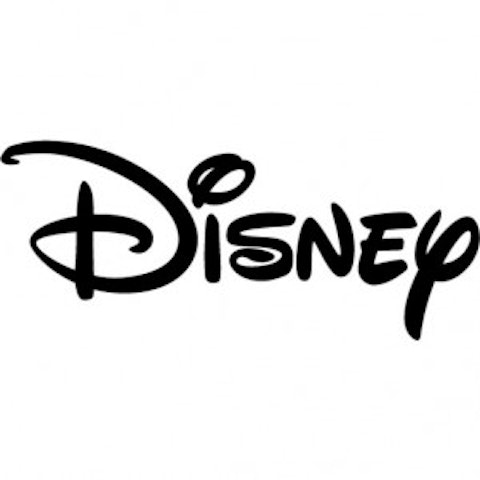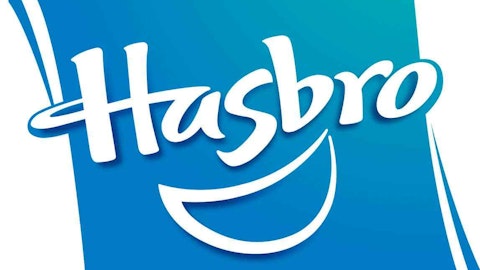
A treasure of characters
Chairman & CEO Bob Iger has put his stamp on The Walt Disney Company (NYSE:DIS) with several strategic acquisitions. His strategy is to go out and buy new characters or businesses that are capable of creating great characters and great stories. He has done so with the purchase of Pixar in 2006, followed by Marvel Entertainment in 2009, and finally Lucasfilm and its Star Wars franchise last year.
The latest example of the Disney magic is The Lion King, an animated film Disney released in 1994. Since 2002, the theatrical production of The Lion King has grossed more than $1 billion and has been seen by more than 15 million people across North America.
The Walt Disney Company (NYSE:DIS) realizes the value of its characters and that’s why it just purchased Viacom’s remaining distribution rights to Marvel films. Disney now controls the rights to Iron Man, Iron Man 2, Thor, and Captain America: The First Avenger. Disney is just getting started on Broadway, and look for shows staring characters from the Pixar, Marvel and Star Wars franchises.
Leveraging Lucasfilm
Analysts have high expectations for the next installment of Star Wars. Even though the film won’t be released until 2015, some are predicting that the film will gross at least $1.2 billion at the box office. I think that number can be achieved considering that The Avengers grossed $1.5 billion at the box office last summer.
Electronic Arts Inc. (NASDAQ:EA) won the license to produce Star Wars video games from The Walt Disney Company (NYSE:DIS). This was a huge win for Electronic Arts Inc. (NASDAQ:EA), as every game developer wanted to develop the new video game series for Disney. The trailer was just released for Star Wars: Battlefront, and is from the perspective of a single character in a combat situation. The new Star Wars could be the latest hit for Electronic Arts and drive top and bottom line growth.
The problem I have with Electronic Arts Inc. (NASDAQ:EA) is that the stock is rather pricey. The company has a current P/E of 78, and the stock has rallied 112% in the past year. The expectations for Star Wars are already priced into the stock.
Leveraging its theme parks
The Walt Disney Company (NYSE:DIS)’s theme parks are the company’s second largest division after ESPN and its cable networks. Disney has incorporated its beloved characters into its theme parks in the form of rides and consumer products. This year Disney raised admission prices at its theme parks in California and Florida by as much as 9.6%. The latest move for The Walt Disney Company (NYSE:DIS) is that the company is now testing electronic wristbands that serve as admission tickets, hotel room keys and credit cards. The new program is called MyMagic+, and helps speed transactions and makes visits more efficient for Disney guests.
Still in the game with Hulu
The plan prior to the Allen & Company conference in Sun Valley, Idaho was for Disney and its partners Comcast Corporation (NASDAQ:CMCSA) and 21stCentury Fox to sell Hulu to the highest bidder. However, during the conference the owners had a change of heart and are now going to invest $750 million in building Hulu.
With the growing popularity of Netflix, Inc. (NASDAQ:NFLX), it really didn’t make much sense to sell Hulu considering that all three partners produce both film and television shows. Hulu has 30 million monthly visitors, revenues that doubled to $690 million last year, and 4 million paying subscribers. The reason for selling Hulu prior to the conference was a disagreement between Disney and 21st Century Fox on Hulu’s direction. Now The Walt Disney Company (NYSE:DIS) and 21st Century Fox are in agreement on the strategy for Hulu. By investing money into Hulu, Hulu can now buy additional programming and compete better with Netflix, Inc. (NASDAQ:NFLX) and Amazon.com, Inc. (NASDAQ:AMZN).
For 21st Century Fox, retaining its ownership stake in Hulu continues its path of being a pure-play entertainment company now that it has separated from News Corp. and its newspaper business. Part of 21st Century Fox’s disagreement with Disney comes from CEO Rupert Murdoch’s competitive nature. He remains Disney’s biggest competitor and is going after Disney’s bread and butter with the launch of Fox Sports 1 next month to compete head-to-head with ESPN. He is also looking to go after Disney’s success on Broadway and develop musicals based on Fox movie characters. The musical possibilities include adaptations of Avatar, X-Men, and There’s Something About Mary.
Foolish assessment
They say imitation is the sincerest form of flattery. In Disney’s case, as the world’s largest media company everyone wants to be like them. No other company does a better job than The Walt Disney Company (NYSE:DIS) of turning its characters into new businesses and assets.
Disney has a lower forward P/E of 16.73 compared to Fox’s 18.63. Disney also has a higher operating margin of 21.19% versus 16.15%. The future looks bright for Disney and the stock still remains attractive as a long-term investment.
The article The House Of Mouse Is Still Roaring originally appeared on Fool.com and is written by Mark Yagalla.
Mark Yagalla has no position in any stocks mentioned. The Motley Fool recommends Walt Disney. The Motley Fool owns shares of Walt Disney. Mark is a member of The Motley Fool Blog Network — entries represent the personal opinion of the blogger and are not formally edited.
Copyright © 1995 – 2013 The Motley Fool, LLC. All rights reserved. The Motley Fool has a disclosure policy.



